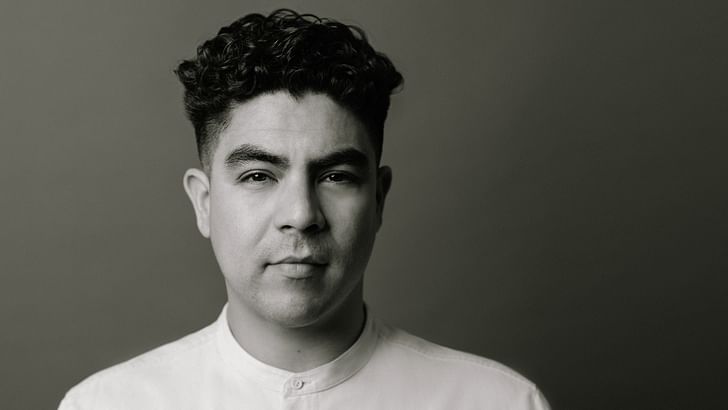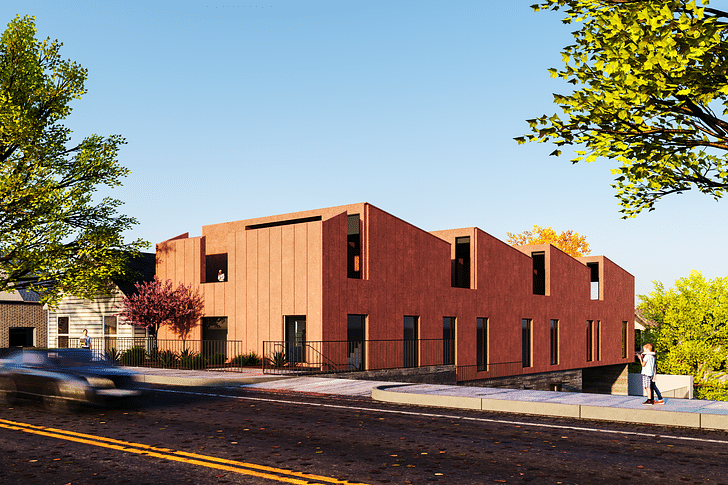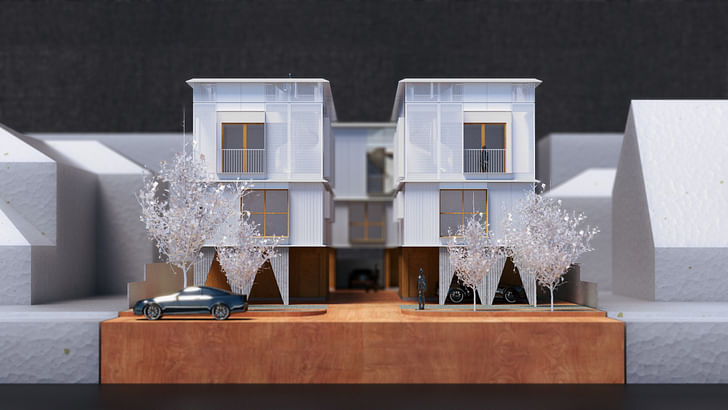

For some, architecture is a calling; for others, they're called to the profession in unexpected ways. This is the case for Luis Gil, architect and founder of the LA-based practice TALLER (tah-yehr).
For the latest installment of Archinect's Studio Snapshot series, we connected with Gil to learn more about the firm he established and his journey to architecture. We discuss the challenges and benefits of running your own practice, what he looks for in new team members, and what he strives to change when it comes to the industry's problematic work culture.
Can you briefly share your architecture journey and what led you to start your own practice?
My journey has been winding. I found architecture almost by accident: An economics professor of mine suggested I look into it when he noticed my almost complete disinterest in the business degree I was supposed to be pursuing. I took one class and was hooked. I went on to complete my BArch at Cal Poly Pomona and then was lucky to have the opportunity to be a part of the design team at WE Architecture in Copenhagen and later at REX Architecture in New York, where I was able to take part in some amazing projects.
Ultimately, my interest in building led me to pursue an understanding of the entire project process: There was a lot that went on outside of our architecture contracts to get a project realized that I had no idea about. So, I enrolled in the MDes program at Harvard GSD and worked in development for a period afterward. I decided to start my own practice in late 2019 to bridge these two worlds: the idealistic world of design with the pragmatic understanding of development.

I decided to start my own practice in late 2019 to bridge these two worlds: the idealistic world of design with the pragmatic understanding of development.
How large is your team? How is your office structured?
We are small by design; there are three of us in total. But, this number has fluctuated. It has been just me, and we have brought on additional collaborators beyond core staff for larger projects as well. The flexibility helps as we find a reliable way to grow. The office structure is relatively horizontal in order to keep the work collaborative.
What are the benefits of having your own practice? Is scaling up a goal?
There is the freedom to pursue your design interests and direction. This, of course, requires the right clients and projects, which requires the ability to say no to certain work. In order to do this, we must stay nimble. For this reason, scaling up is not an immediate goal.
What have been the biggest challenges in starting and running your own practice?
Time management and consistency. I understandably want to do everything, but this becomes more difficult when there's also an office to run, and you need to go out and get more work. To that end, finding consistency in project intake has been difficult, but we have been lucky to have rewarding work coming in.
What is something you strive to change when it comes to architecture's problematic work culture?
Pay and work-life balance. I don’t believe in unpaid work. It is an unfortunately pervasive, predatory practice in our industry. As is the idea that you need to give everything of yourself for the betterment of the project. These are big-ticket items that I believe perpetuate inequality in the industry and need to change in order to make the architecture profession more appealing, diverse, and inclusive.
...our ongoing Brannick development does hold a special place [...] it is the first time we are playing both architect and developer on our own ground-up project.
Do you have a favorite/memorable project? Completed or in progress?
I wouldn’t say I have a favorite. Each, luckily, has been rewarding. I will say that our ongoing Brannick development does hold a special place, however, since it is the first time we are playing both architect and developer on our own ground-up project. Wearing both hats has been a valuable learning experience.
Where do you hope to see TALLER in the next five years?
I’d like to be taking on more civic work and see our multifamily work grow to larger projects. I am passionate about housing and believe we need to build much more of it if we are to make a dent in the affordability crisis in Los Angeles. I’d like the practice to become a leader in the area for well-designed multifamily residential.
I am passionate about housing and believe we need to build much more of it if we are to make a dent in the affordability crisis in Los Angeles.

What qualities do you look for in new hires?
Design acumen and accountability. I believe in giving people ownership over their work, so new hires need to be self-motivated and willing to take on responsibility. I prefer to guide, not instruct, so we look for people that are comfortable working with little or no direction at times.
If you could describe your work/practice in three words, what would they be?
Ambitious, curious, resourceful.
What do you want your firm to be remembered for?
Thoughtful design for the greater good.
What music do you listen to when working?
Lately, Nipsey Hustle and J Cole have been on heavy rotation, with a fair amount of El Gran Combo de Puerto Rico mixed in for good measure.
Favorite office lunch destination?
Sonoratown, hands down.
You never leave the office without ___?
Laser measure, headphones, and a Pilot V7 pen.
If you could collaborate with any architect (living or dead), who would it be?
Tough. The list varies, but the top three right now, in no particular order, would be: Eladio Dieste, David Adjaye, and Glenn Murcutt.
If you didn’t pursue architecture, what career/industry would you be working in?
Hard to say. I like to think I’d be a musician. Or an astrophysicist. Or a professional chess player. Or an aspiring but flailing stand-up comedian. Still plenty of time for a career pivot, I guess…
Katherine is an LA-based writer and editor. She was Archinect's former Editorial Manager and Advertising Manager from 2018 – January 2024. During her time at Archinect, she's conducted and written 100+ interviews and specialty features with architects, designers, academics, and industry ...
No Comments
Block this user
Are you sure you want to block this user and hide all related comments throughout the site?
Archinect
This is your first comment on Archinect. Your comment will be visible once approved.